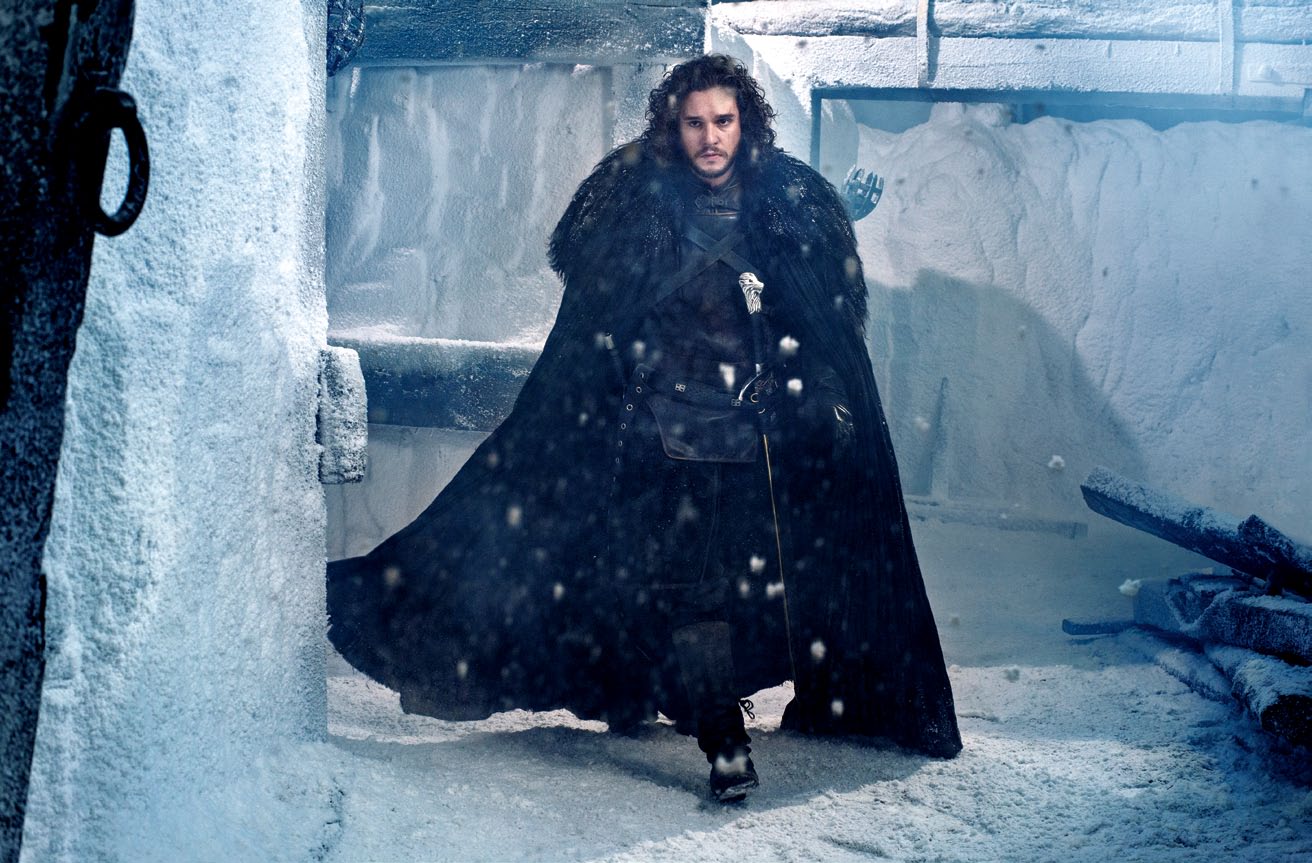
In the ten months since Game of Thrones‘s fifth season finale, there’s been much speculation over the fate of Jon Snow, whom no one believes is, or will stay, dead. Long before cameras caught actor Kit Harington near a Thrones set in Northern Ireland, the widespread assumption was that Harington would be back—and not just playing a corpse.
Sure, there’s enough magic in Westeros to make a resurrection more credible than it would be on most other TV series. But even shows without sorceresses and dragons have lately defied death, or used it as the cheapest sort of narrative trick. HBO’s refusal to address the status of Jon Snow, and its continued treatment of him as no longer living, isn’t just the sort of thing fans of Harington would rather deny—it’s an invigorating rebellion against a TV state of affairs that’s robbed death of its narrative power.
The most notable offender of the classic rules of narrative and death is AMC’s The Walking Dead, a show that “killed off” a fan-favorite character only to see him return later with a laughable story about how he escaped the zombies who had appeared to destroy him. The show’s contempt for its own audience was in evidence even before a season-ending cliffhanger that featured a character receiving a likely-fatal blow—but not revealing which one. This all exists at a time when TV dramas’ willingness to chuck nonwhite and queer characters through violent ends has come under greater-than-ever scrutiny. Recent plot twists on Sleepy Hollow and The 100 have seemed to use death as a convenient way to dispose of characters who go against the status quo, rather than as an event for which “life-altering” is an understatement.
Yes, these are fictional characters, but treating their lives so carelessly raises the question of why any of us should care. If shows’ writers don’t take seriously the most serious question of all, they’re exposing a disdain for our time. By refreshing contrast, the Game of Thrones team used no narrative trickery or artful camerawork; Jon Snow was shown to actually die, and nothing HBO has said or shown in promotional materials contradicts that. Fan theories would be inevitable at any time, but have never been easier in the age of the global social web and of telephoto-lensed paparazzi. Either way, HBO’s refusal to give fans the red meat they crave—even to hint that Harington has a story to tell beyond that of a corpse needing to be disposed— is oddly refreshing. It’s a stark contrast to most of the TV landscape, where death is anything but grave.
More Must-Reads From TIME
- The 100 Most Influential People of 2024
- The Revolution of Yulia Navalnaya
- 6 Compliments That Land Every Time
- What's the Deal With the Bitcoin Halving?
- If You're Dating Right Now , You're Brave: Column
- The AI That Could Heal a Divided Internet
- Fallout Is a Brilliant Model for the Future of Video Game Adaptations
- Want Weekly Recs on What to Watch, Read, and More? Sign Up for Worth Your Time
Contact us at letters@time.com